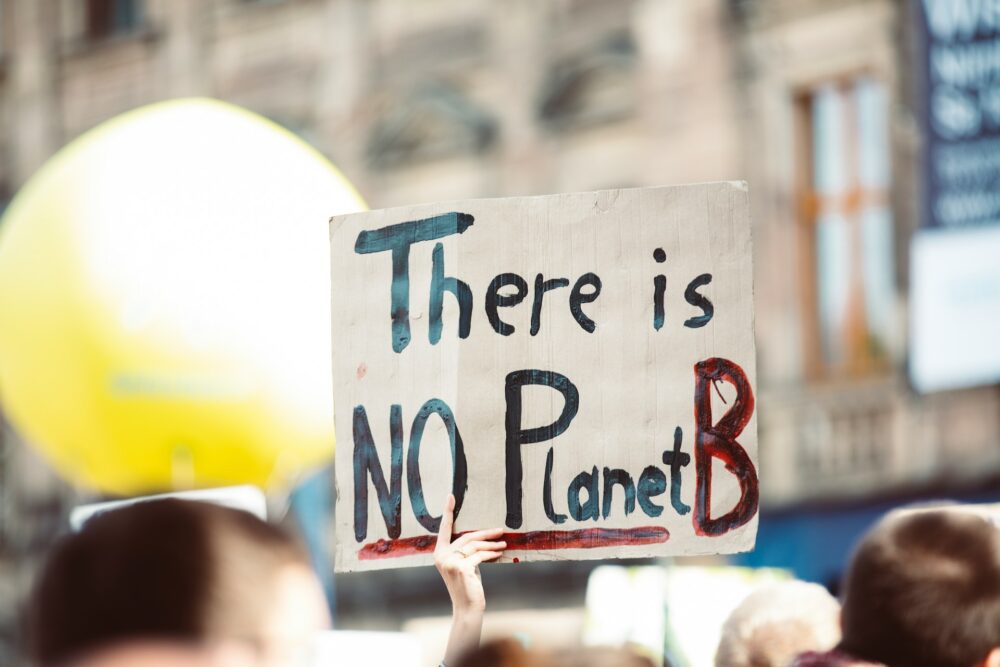Africa
Climate Change: A Summer of Challenges for Morocco
Morocco experienced prolonged and intense heatwaves in July and August 2024, linked to climate change and global warming. Temperatures reached record highs, with some cities surpassing previous records. Experts warn that such extreme heat may become the norm, exacerbated by urbanization and atmospheric anomalies, threatening water resources, agriculture, and overall environmental stability.

The summer of 2024, which is drawing to a close, has been scorching in several regions of Morocco where the mercury has reached record temperatures, in line with global trends in climate change.
Prolonged and serial heat waves punctuated the months of July and August, marking an increase in the frequency and intensity of heatwave episodes in Morocco. Scientists and experts agree to associate these heatwaves, directly or in part, with the climate disruptions that the planet has been experiencing for several years, in particular the phenomenon of global warming linked to greenhouse gas emissions. They fear that these intense heatwaves will eventually become the new norm.
“Climate models predict an increase in average temperatures and an intensification of climate extremes, which suggests that episodes of extreme heat will become an increasingly regular feature,” Kenza Khomsi, head of the climate and climate change department at the General Directorate of Meteorology (DGM), told MAP.
Climate change: Record temperatures in Morocco
July 2024 was the second hottest month ever recorded in the world, according to the European agency Copernicus, while the American National Oceanic and Atmospheric Administration (NOAA) estimates that the year 2024 now has a 77% chance of being the hottest ever observed on Earth. A finding confirmed by the scorching temperatures recorded during the successive heat waves this summer, which affected several cities and regions across Morocco.
Thus, the mercury reached 48.3°C in Kasba Tadla, 47.7°C in Beni Mellal and 47.6°C in Marrakech, on July 23rd. Chefchaouen also set a new record with 43.4°C on July 19, while Ifrane, known for its typically mild summers, recorded 37.8°C on July 23. Midelt also set a record of 40.7°C on July 11, surpassing its previous record of July 1945, according to DGM data.
The first half of August 2024 also saw scorching temperatures in several regions, with peaks reaching up to 46°C in Marrakech, 41°C in Oujda, 42°C in Fez, and 45°C in Smara. While these heat waves observed in Morocco are partly due to the “chergui”, a natural phenomenon that brings hot air from the Sahara, it remains true that they are also part of a global warming trend observed in recent years, the DGM emphasizes.
Indeed, over the last four decades, average annual temperatures in Morocco have shown an upward trend, reaching +1.8°C, according to the Moroccan climatologist, who notes that heat waves have become more frequent and intense than in the past.
Atmospheric anomalies and human activity
Jamal Alibou, a climate change expert and lecturer-researcher at the Hassania School of Public Works (EHTP), explains that heat waves have become “more frequent, more intense and longer” due to climate change.
For example, the summer of 2023 saw some of the most severe heatwaves ever recorded in Morocco, culminating in a new national record of 50.4°C, recorded in Agadir on August 10th, 2023. These prolonged heatwaves are also amplified by atmospheric anomalies, such as persistent high pressure systems that trap warm air and prevent the circulation of cooler weather systems.
Scientists also point to urbanization, in that asphalt surfaces in urban areas absorb and retain more heat, exacerbating the urban heat effect, especially at night. Heat waves also impact water resources, as they increase evaporation from reservoirs, rivers and lakes, reducing water supplies available for irrigation, drinking water supply and other uses, notes Alibou, who teaches in the Department of Hydraulics, Environment and Climate.
Therefore, the agricultural sector remains particularly vulnerable to these climate disruptions. “Recent heat waves have affected agriculture by increasing water stress for crops, reducing soil fertility and promoting the spread of pests and plant diseases, exacerbating agricultural losses,” explains the Moroccan expert. According to him, excessive temperatures can also reduce the yield of heat-sensitive crops, such as wheat, corn and rice, leading to a decrease in productivity.
__
(Featured image by Markus Spiske via Unsplash)
DISCLAIMER: This article was written by a third party contributor and does not reflect the opinion of Born2Invest, its management, staff or its associates. Please review our disclaimer for more information.
This article may include forward-looking statements. These forward-looking statements generally are identified by the words “believe,” “project,” “estimate,” “become,” “plan,” “will,” and similar expressions. These forward-looking statements involve known and unknown risks as well as uncertainties, including those discussed in the following cautionary statements and elsewhere in this article and on this site. Although the Company may believe that its expectations are based on reasonable assumptions, the actual results that the Company may achieve may differ materially from any forward-looking statements, which reflect the opinions of the management of the Company only as of the date hereof. Additionally, please make sure to read these important disclosures.
First published in LES ECO.ma. A third-party contributor translated and adapted the article from the original. In case of discrepancy, the original will prevail.
Although we made reasonable efforts to provide accurate translations, some parts may be incorrect. Born2Invest assumes no responsibility for errors, omissions or ambiguities in the translations provided on this website. Any person or entity relying on translated content does so at their own risk. Born2Invest is not responsible for losses caused by such reliance on the accuracy or reliability of translated information. If you wish to report an error or inaccuracy in the translation, we encourage you to contact us

-

 Crowdfunding2 weeks ago
Crowdfunding2 weeks agoReal Estate Crowdfunding in Mexico: High Returns, Heavy Regulation, and Tax Inequality
-

 Cannabis1 week ago
Cannabis1 week agoSouth Africa Proposes Liberal Cannabis Regulations with Expungement for Past Convictions
-

 Crypto4 days ago
Crypto4 days agoCrypto Markets Under Pressure as Vitalik Buterin Sells 17,000 ETH
-

 Markets2 weeks ago
Markets2 weeks agoWeather-Driven Supply Outlook Lifts Coffee Markets in Brazil and Vietnam

























